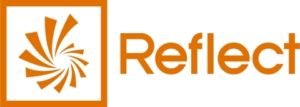Adrian J Cotterill, Editor-in-Chief
Reflect Systems has been awarded a patent (U.S. Patent No. 11030643) for the company’s AdLogic platform. The patent details the process by which a computer system can precisely deliver targeted advertising over time, taking into account a number of variables including, changing network conditions and the new pain points today’s advertisers are facing.
 Prior to the launch of AdLogic, scheduling and delivering advertising in blended-content environments was time-consuming and error-prone, requiring tremendous manual effort and resulting in inaccurate delivery against ad campaign objectives. AdLogic solves this by providing a user-friendly platform for intelligently scheduling advertising for any digital signage content network.
Prior to the launch of AdLogic, scheduling and delivering advertising in blended-content environments was time-consuming and error-prone, requiring tremendous manual effort and resulting in inaccurate delivery against ad campaign objectives. AdLogic solves this by providing a user-friendly platform for intelligently scheduling advertising for any digital signage content network.
By allowing advertising content to be scheduled based on campaigns, AdLogic aligns content scheduling and reporting to the way advertisers purchase media. The patented technology also ensures campaign objectives are always achieved by automatically rebalancing ad delivery across the network as players go on and offline.
Bart Massey, Reflect’s chief technology officer told us “Rebalancing ad plays is a tedious manual process that no one enjoys tackling. However, failing to rebalance can result in significant under delivery, damaging relationships with advertisers, or over delivery – which reduces available inventory and revenue for media owners. AdLogic removes this risk completely, giving users confidence that their content is being delivered effectively.”
Today AdLogic natively integrates with Reflect’s digital signage platform, ReflectView, to provide a powerful, comprehensive solution. Additionally, AdLogic’s API-based cloud architecture is specifically designed to support integration with other solutions and is currently driving more than 30 million ads daily through some of the world’s largest digital signage deployments.

June 23rd, 2021 at 13:19 @597
Interesting – most ad-based (DOOH) platforms automatically rebalance for minimum number of plays not achieved due to disruption on a per-player basis already. Wondering what additional features this gives (I assume across player networks) vs the prior art of the normal rebalancing features provided by platforms on a player basis?
Time to check the patent methinks.